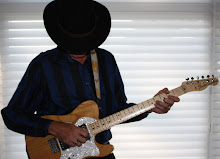I
recently picked up the Bob Dylan 30th
Anniversary Tribute concert DVD.
Dunno why they kept us waiting 22 years, but it was worth the wait.
Great
performances by an all-start cast. And
some of the best songs ever written.
I
watched the DVD with someone who’s a little younger than me, who asked, “What’s
the big deal about Dylan anyway?” The
question was influenced by this person’s limited exposure to Dylan, which is
mostly latter day Dylan, the cat with the cartoonish voice, dark sound and
suicidal lyrics.
But
that’s not the Dylan I know. Well, I do,
and I think he’s kinda cool too (in his own way).
Anyway,
I responded, “Just listen! Look who’s on
the stage!” A substantial number of my
favourite artists, some of the most successful of all time, were influenced by
Bob Dylan. They said as much, and they
proved their assertion in their renditions of his songs.
More
than any other artist, Dylan is the link that connects our modern music – and
culture – with the past. Sure, Clapton
and Page dug out some blues gems. Yes, The Beatles and The Stones played
Nashville, Motown and Memphis with conviction.
But
Dylan is the conduit. Delta Blues, Hillbilly folk, sea shanties,
gospel, ballads, poems, stories … It was as if he had absorbed a dozen
working-man’s cultures, and poured it out into the modern world. Folk, rock and roll, soul, blues rock, R&B,
folk rock … he’s touched it all, and shown us where it all came from.
And
he spoke the truth, fearlessly. It’s too
bad we stopped listening. We better
start swimming.
